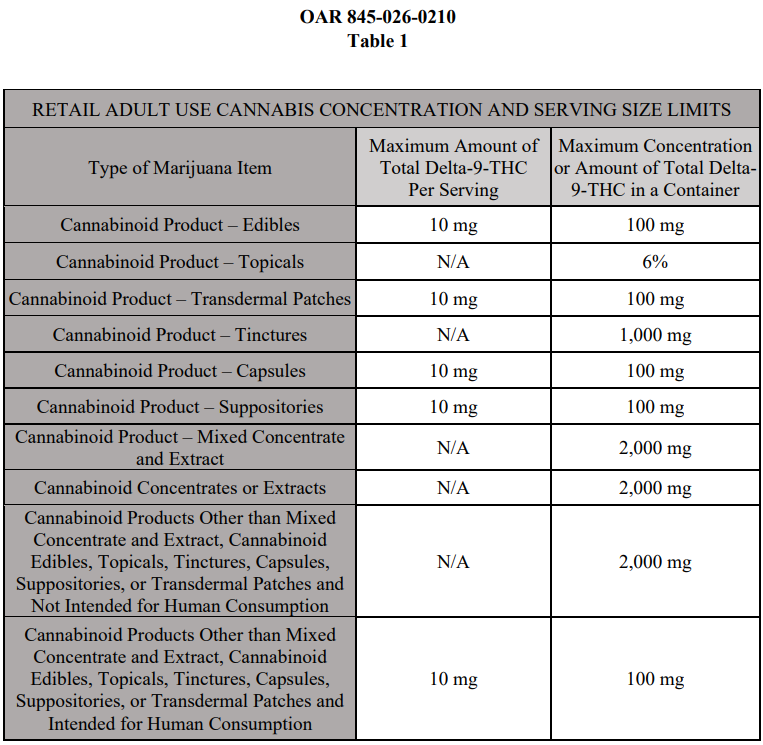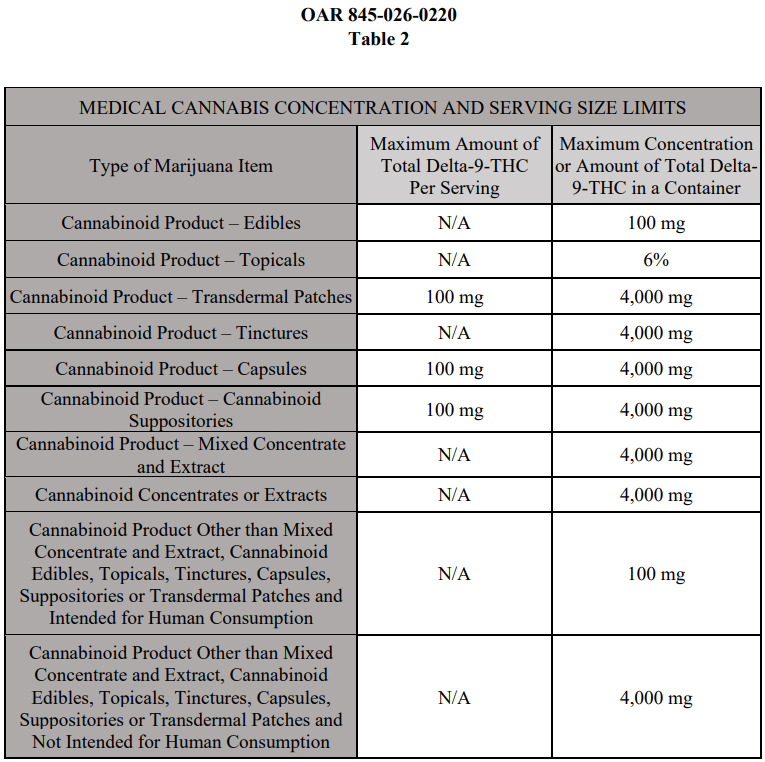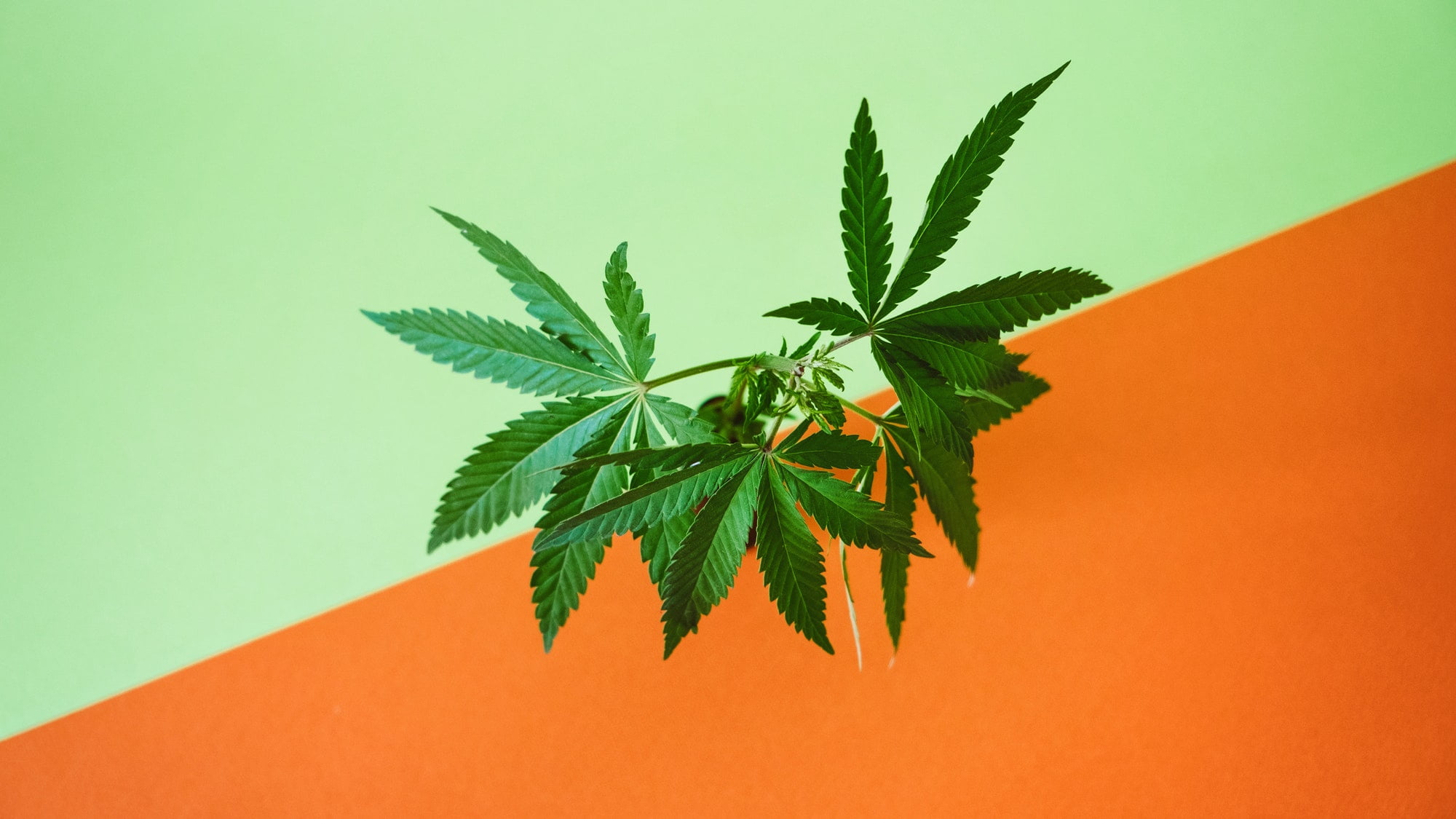The Oregon Liquor & Cannabis Commission’s “CE2023-05 Technical Fixes” bulletin introduces crucial changes affecting the state’s marijuana industry. This post delves into each update in more detail.
Please be sure to review these rule changes – Dec 13th Compliance Bulletin!
Water Usage Reporting Marijuana producers are now required to report water usage to the Oregon Water Resources Department. This change emphasizes the importance of sustainable water use in marijuana cultivation, mandating producers to fill out a specific form to demonstrate legal and responsible water use.
Psilocybin and Marijunana Premises Restrictions The criteria for denying a marijuana license have been updated, including stricter rules on where marijuana businesses can operate, especially in relation to psilocybin service centers. This aims to regulate the co-location of these businesses to ensure proper compliance with state laws.
Sales and Product Limits There are now new limits on how much marijuana can be sold daily and specific adjustments to the concentration and serving size of cannabis products. These changes prioritize consumer safety, ensuring products are sold and consumed responsibly.
Labeling Requirements The bulletin specifies new labeling requirements, with a focus on infused pre-rolls. These requirements are designed to increase transparency and inform consumers better about the contents and potency of these products.
State Cannabis Reference Laboratory A state laboratory for cannabis testing will be established. This laboratory will standardize testing procedures across the state, ensuring consistent quality and reliability in cannabis product assessments.
Violation Categories and Definitions Updated categories and clearer definitions for cannabis product violations are provided. This is intended to help businesses better understand and adhere to regulations, thereby reducing compliance issues.
Water Usage Reporting
The Oregon Liquor & Cannabis Commission, in collaboration with the Oregon Water Resources Department (OWRD), has updated the water usage reporting process for marijuana producers. Now, when applying for a new license, changing ownership, or altering their premises, producers must directly submit their water usage documents to OWRD and acquire an approval form. This form certifies that their water source is legal. OWRD checks the legality of the water source and the infrastructure before granting licensure or approving premise changes. For water rights queries, producers are advised to contact their local water master. Oregon Water Resources Marijuana Producer Water Use Form: Download
Psilocybin, and Marijuana Businesses License and Premises Restrictions
In January 2023, Oregon’s OLCC amended rules due to the OHA’s launch of the psilocybin program. These changes prevent recreational marijuana licenses and psilocybin premises from occupying overlapping spaces. Specific amendments include redefining premises overlap in OAR 845-025-1115 and precluding overlap in OAR 845-025-1230. This allows marijuana and psilocybin businesses to coexist at the same address, provided their licensed areas do not overlap, aligning OLCC rules with OHA’s regulations.
Sales and Product Limits
Starting January 2, 2024, Oregon is increasing the daily sales limits for cannabinoid concentrates, extracts, and inhalation products to 10 grams per category. The concentration limit per container remains the same for concentrates and extracts. A new product category, “Mixed concentrate and extract,” has been defined for concentration and serving size limits. Additionally, the concentration limit for inhalation products like flavored vapes and infused pre-rolls will increase to 2,000 mg THC per container. Businesses may need to update their product labeling and categorization in the Cannabis Tracking System.
Sales Limit Increases Coming Soon
Cannabis Industry Alliance of Oregon (CIAO) Newsletter, Thu 12/14/2023
The good news – The OLCC sent out a Compliance Bulletin yesterday about the rule package that was passed in November. Unless otherwise noted in the bulletin the rule changes go into effect January 2nd 2024. These changes include the increase in sales and concentration limits for concentrates, extracts, and Cannabinoid products intended for inhalation! Please be sure to review these rule changes – Dec 13th Compliance Bulletin!


Labeling Requirements
Starting April 1, 2024, any new packaging or label submitted to the OLCC that is not approved and not resubmitted within 365 days will be inactivated. This rule also applies to approved applications that are reopened for amendments. If not resubmitted within this timeframe, the application fee will be forfeited.
OAR 845-025-5765 details the collaboration between the OLCC and ODA to establish Oregon’s state Cannabis Reference Laboratory. This lab will work with the OLCC in testing cannabis products. Its test results can override those from OLCC licensed labs. The lab also participates in audit testing to investigate product contamination and misrepresentation concerns.
Enhancing the challenge of obtaining higher test scores and maintaining greater integrity in the potency testing conducted by laboratories.
Violation Categories and Definitions
OAR 845-025-2020(3) modifies violation categories for producers. Category I violations include diversion or inversion of marijuana in retail transactions. Processor violations regarding marijuana production or transfer without adherence to rules are also Category I. Worker permit suspension or revocation for felony convictions is clarified. Transporting marijuana offsite without a manifest to unknown or unlicensed locations is now a Category I violation. Adulterating marijuana items knowingly is Category I, and unintentionally is Category II. New definitions in Division 25 include “Certificate of tax compliance,” “Cannabis reference laboratory,” and an expanded “Licensee” definition.
This focuses on preventing diversion and tax avoidance in the Oregon marijuana industry. It imposes stricter penalties for violations related to the illegal transfer, sale, or production of marijuana. Category I violations include activities that suggest diversion of marijuana. The changes also address tax compliance, emphasizing the importance of adhering to state tax regulations.
Batch Tagging Delayed
Cannabis Industry Alliance of Oregon (CIAO) Newsletter, Thu 12/14/2023
The bad news – Today, the OLCC commissioners passed temporary rules that changed the start date for batch tagging of adult plants to April 22 2024. To be clear, being able to tag up to 100 adult cannabis plants under a single tag will NOT start January 1, the new start date is 4/22/24.
The OLCC team acknowledges that this delay unfortunately extends beyond the original timeline. The new timeline allows the OLCC to finalize the contract changes with Metrc and allows for additional rule making that may be needed to clarify the allowances and requirements associated with batch tagging.
Enabling licensees to batch tag adult plants has been a top priority for the CIAO team for years and so this news was frustrating and disappointing. That being said we will continue working with the OLCC to make sure it is implemented as quickly as possible and as simply as possible.
Overall, the CE2023-05 Technical Fixes bulletin presents modest updates for Oregon’s marijuana industry. The delay in implementing batch tagging is unfortunate, as it would have streamlined processes for producers. However, the increase in sales limits for products is a positive development, offering greater flexibility for retailers and potentially boosting sales. These changes reflect a continued effort to refine and improve industry regulations.

